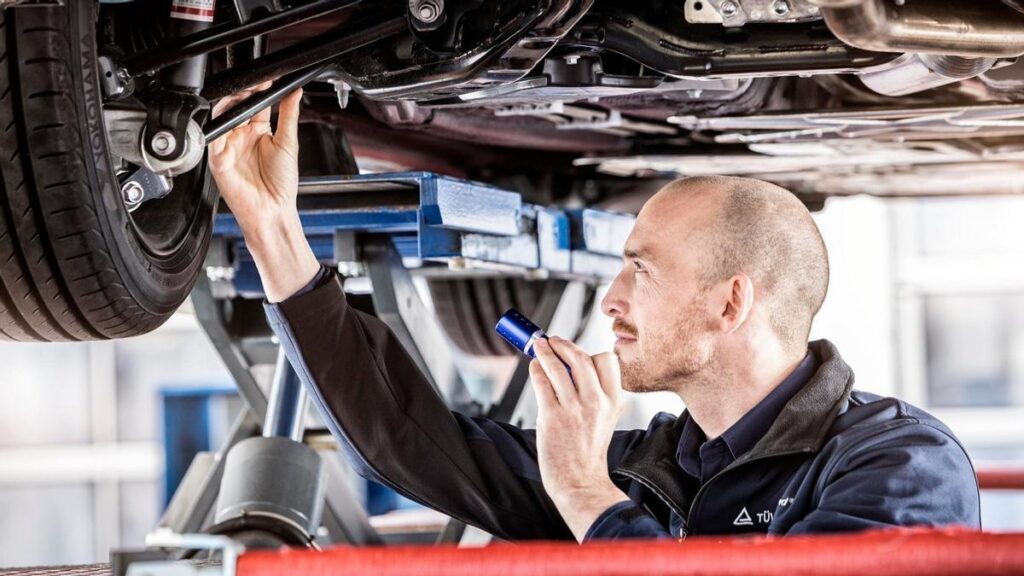What Is a Car Inspection? Everything You Need to Know
Ever wondered what really happens during a car inspection and why it’s so essential for your vehicle? Whether you’re gearing up for a road trip or preparing to renew your registration, understanding the ins and outs of a car inspection is key. In this guide, we’ll uncover everything you need to know about this crucial process and how it keeps you safe and compliant on the road. Stay tuned!
Get a vehicle inspection in Brooklyn. Schedule now!

What Does a Car Inspection Involve and Why Is It Important?
A car inspection is a thorough evaluation of your vehicle’s safety, performance, and compliance with emissions standards. Conducted by a certified technician, this process ensures your car remains roadworthy, efficient, and legally compliant.
Key Components of a Car Inspection:
- Safety Features: The inspection covers brakes, tires, lights, steering systems, and other critical safety components. This ensures the vehicle operates reliably and minimizes risks on the road.
- Mechanical Systems: Technicians check the engine, transmission, and exhaust systems for wear, leaks, or malfunctions that could compromise performance or cause breakdowns.
- Emissions Testing: A test ensures the car’s emissions fall within acceptable limits, helping reduce harmful pollutants and keeping the vehicle environmentally compliant.
Importance of Car Inspections:
- Preventive Maintenance: Inspections help detect potential issues early, saving you from costly repairs down the line.
- Legal Compliance: Many regions require up-to-date inspections to avoid fines and maintain the right to operate your vehicle legally.
- Resale Value: A vehicle with a current inspection record often appeals more to buyers, as it signals proper maintenance and reliability.
How Often Should You Get a Car Inspection?
The frequency of car inspections depends on local regulations and your vehicle’s specific needs. Many regions mandate annual or biennial inspections for safety and emissions compliance. For example, emissions tests may be required every 1-2 years, while safety checks might be necessary annually, depending on your area’s laws.
The Difference Between a Regular and Pre-Purchase Car Inspection
Knowing the distinction between a regular car inspection and a pre-purchase car inspection is essential for maintaining your vehicle or making an informed buying decision. While both aim to ensure the condition of a car, they serve different purposes and have unique scopes.
Regular Car Inspection
- Purpose: Ensures the vehicle is roadworthy and compliant with safety regulations.
- Scope: Focuses on essential components like brakes, tires, lights, exhaust systems, and engine performance. It may also include fluid levels and emissions testing, depending on legal requirements.
- Frequency: Typically performed annually or bi-annually, depending on regional laws and the vehicle’s type.
- Convenience: Scheduled as part of ongoing maintenance; focuses on known or emerging issues.
Pre-Purchase Car Inspection
- Purpose: Assesses a used vehicle’s overall condition before purchase, identifying potential hidden problems and helping the buyer make an informed decision.
- Scope: Offers a deeper examination of the car, including the engine, transmission, brakes, suspension, electrical systems, and even vehicle history. Diagnostic tests may also be conducted to reveal underlying issues like engine trouble or frame damage.
- Frequency: Conducted once, specifically before purchasing a used car.
- Convenience: Provides peace of mind to buyers, particularly when purchasing from private sellers or dealers without warranties, potentially saving significant repair costs.
What Happens If Your Car Fails an Inspection?
Failing a car inspection can be frustrating, but it’s a manageable situation. A failed inspection could result from minor issues like a broken taillight or more significant problems requiring extensive repairs. Here’s what to expect and how to handle it:
Receiving a Failed Inspection Sticker
When your car fails, you’ll typically receive a failed inspection sticker or rejection sticker. This allows you to drive your vehicle home and to a repair facility while the issues are addressed.
Repair and Re-Inspection Timeline
Most states provide a specific timeframe to repair the identified issues and complete a re-inspection. It’s essential to act quickly to avoid penalties or extended downtime for your vehicle.
Resolving Minor vs. Major Issues
- Minor Issues: Problems like a faulty bulb or worn wiper blades can often be resolved the same day, sometimes even by the mechanic who performed the inspection.
- Major Issues: More complex repairs, such as brake system overhauls or emissions-related problems, may take longer. Scheduling these repairs promptly ensures you stay within the allowed timeframe.
Schedule Your Appointment Today and Ensure Your Vehicle Is Road-Ready
At Carlos Repairs Ridge, we specialize in comprehensive car inspections to keep your vehicle safe and road-ready. Whether you need a routine safety check, an emissions test, or a pre-purchase inspection, our skilled technicians have you covered. Our inspection services ensure every aspect of your vehicle is in top condition and compliant with local regulations.
With our commitment to precision and customer satisfaction, we identify potential issues early to save you from costly repairs down the road. Conveniently located at 34 Ridge Rd, North Arlington, NJ, Carlos Repairs Ridge offers the expertise and reliability you can trust.
Reviewed by Carlos Jimenez – Mechanic
